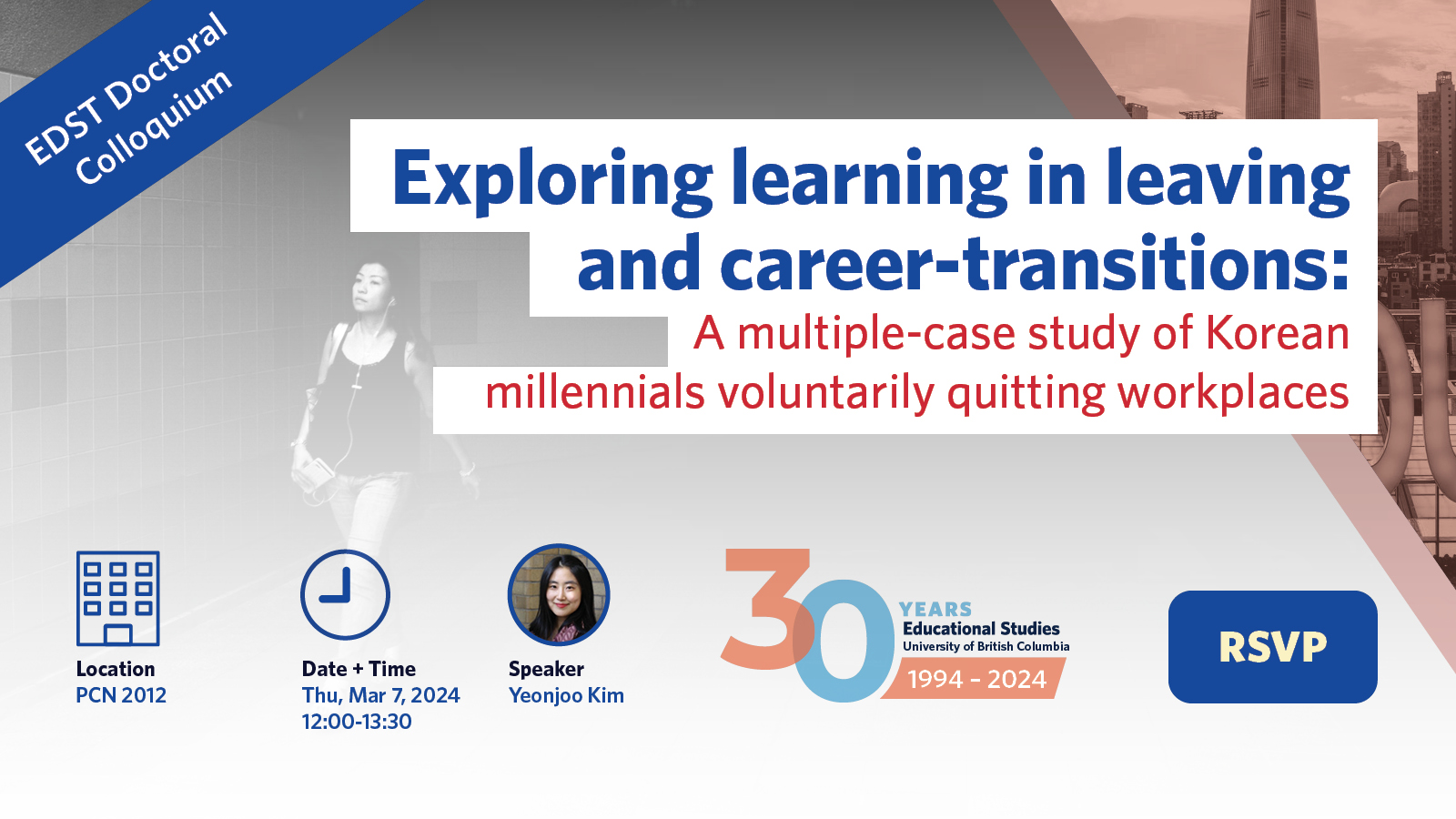Date: March 7, 2024, Noon-1:30
Place: PCN 2012 (Multi-purpose Room)
Speaker: Yeonjoo Kim
REGISTER

Exploring learning in leaving and career-transitions: A multiple-case study of Korean millennials voluntarily quitting workplaces
In South Korea, voluntary quitting of workplaces – known as ‘toesa’ in Korean – has garnered interest since the mid-2010s. In particular, a survey revealing that “the rate of voluntary quitting within one year of college-graduated new employees is 27.7%” (Korea Enterprises Federation, 2016) has drawn increased attention. These new employees, often referred to as “young people,” have graduated from college at a higher rate than any previous generation and have faced fierce competition to secure job positions, making their decision to leave even more noteworthy. Especially for previous generations, who often viewed their first workplaces as lifelong employment, the decision to voluntarily quit is not easy to understand. News reports, newspaper articles, and documentaries have shed light on this emerging phenomenon. On social media platforms, it is easy to find posts in various forms, such as videos, texts, sketches, etc., centered around the hashtag #퇴사 (‘toesa’). The publishing market has also produced a number of books on this topic, some of which have become bestsellers.
Research has also directed attention towards voluntary quitting; however, studies that focus on quitting experiences with a focus on learning and transition remain underdeveloped. This study delves into quitting experiences through the lens of learning and views quitting as a strategy for career transitions. In this study, learning is treated as a social practice (Schatzki, 2001; Nicolini, 2012). By employing a multiple-case study, this research attends to the biographical contexts of Korean millennials, currently in their late 20s and early 40s, delving into their trajectories into higher education and employment, and practices entwined before, during, and after the quitting experience. This study anchors on the research question: How do Korean millennials learn to quit/leave their workplaces? This question contrasts the prevailing interest in adult learning theories, which utilize the metaphor of participation to describe how newcomers join/enter organizations and become old-timers. By exploring learning in Korean millennials’ quitting and career-transitions, this study aims to offer new insights into adult learning theories and the changing relationships of work, learning, and life.
Registration